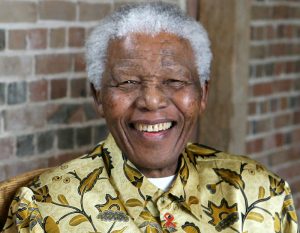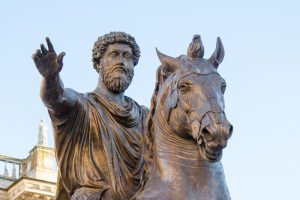March heralds International Women‘s day when we recognise and celebrate all the amazing females who have or continue to grace planet earth. You can read one of our past posts about it here.
In November, we switch things around, and we appreciate the many men whose leadership can inspire and guide our path.
International Men’s Day happens to raise awareness of men’s health and as a way of promoting gender equality overall. The official day is November 19th.
Should We Celebrate Past or Present Role Models?
Depending who you ask, varied people rise to the surface at different times. For instance, in the UK David Attenborough once again tops the Most Admired Man in Britain list, with an admiration score of 23.13%. However, Prince Harry has dropped like a stone after a less than stellar 2020 in the eyes of the UK public.
It is easy to look at the current ‘recognised’ male leaders in the world; but what about those that went before?
If there is one year that we need to tap into some wisdom and guidance from leadership legends, I’d suggest it‘s this one!
I have chosen these three individuals as they are great teachers of critical lesson for the here and now in our COVID dominated world; the long game, stoicism, managing our thoughts and the need to be both courageous and optimistic.
I wonder who might then appear on your male leader board? While you are thinking about that, let me share my favourite guys and why.
Nelson Mandela
 In at one is Nelson Mandela, former President of South Africa and an individual who truly embodied what it means to be an exceptional leader.
In at one is Nelson Mandela, former President of South Africa and an individual who truly embodied what it means to be an exceptional leader.
Something we can all take from Nelson is the need to understand and play the long game. Prison most certainly allowed him to become an expert at long-term planning and goals.
Let’s be honest; there wasn’t much else to do while he was incarcerated. There he was able to consider the fate of his country and process the deeper questions:
- What reputation do we want to leave behind?
- What will people think of us,
- and how do we plan for the future?
He knew history was on his side, that the result was inevitable; it was just a question of how soon and how it would be achieved. “Things will be better in the long run,” he sometimes said.
He always played with the long game as his ultimate goal. This has always been a logical idea, and even more so as we experience the impact of ‘something‘ that has impacted the globe and human relationships in an unprecedented way this year.
Marcus Aurelius
 Marcus Aurelius was the last of the so-called “five good emperors“. He kept the Roman Empire safe from the Parthians and Germans between the years 161-180.
Marcus Aurelius was the last of the so-called “five good emperors“. He kept the Roman Empire safe from the Parthians and Germans between the years 161-180.
Marcus was dropping mind–blowing questions and quotes long before the likes of Tony Robbins and Zig Ziglar appeared on the planet.
Here is one of his classics we could all do well to remember:
“The happiness of your life depends on the quality of your thoughts.“
Our thoughts dictate most things that happen in our life, including our feelings and how we act on them too.
What most people don’t appreciate is that we can change how we think and the thoughts that we have rather than living our lives in an unconscious state.
Marcus did a lot of thinking, and after his death, he left behind a diary which is known as his meditations; imagine the private thoughts of the world‘s most powerful man?
It might surprise you how vulnerable and authentic he was, telling himself to be wiser and less influenced by temptation. Aurelius is also recognised as being influenced by the philosophy of Stoicism; something we could all do with more, today.
Martin Luther King, Jr
I wonder what Martin Luther King would think of what is happening currently across the globe? I suspect that he would have hoped that #Blacklivesmatter would no longer be a thing; yet here we are in the strangest of times.
For those of you reading this that don’t know his back story, MLK, as he is affectionately known, was an American Christian minister and activist who became the most visible spokesperson and leader in the civil rights movement from 1955 until his assassination in 1968. He is best known for advancing civil rights through nonviolence and civil disobedience, inspired by his Christian beliefs.
When you reflect on what was happening in America pre and post World War Two, and this man‘s willingness to stand up and be counted, he is a beacon of light on how to embody courage.
In October 1964 he won the Nobel Peace Prize for combating racial inequality through nonviolent resistance. It is well documented in his acceptance speech that he talked about the power of always being optimistic. In a similar vein to Marcus Aurelius – focus your thoughts on what you want.
In 1965, he helped organise the Selma to Montgomery marches; the subject of the film Selma, which is well worth watching on Amazon Prime or going old school and buying the DVD.
Before his assassination, he was a strong advocate against the Vietnam War. J Edgar Hoover considered him a radical, and he was placed under FBI investigation.
After his death, he was awarded the Presidential Medal of Freedom and the Congressional Gold Medal. So many lessons can be learnt from this outstanding individual.
Be courageous – and get comfortable with being uncomfortable if you ever want to achieve anything in your life.
As I end my celebration of great historical male leaders here a question for you; who would you choose?
Thanks,
Tom Hallett
Commercial Director & Learning Consultant
About Excel Communications
Excel Communications has a 30+ year history as a global leadership and communication skills company providing training and development to organisations virtually across the globe, view our case studies here.
We have a team of expert trainers delivering programmes virtually across four continents in multiple languages. Call us now on +44 (0) 1628 488 854.
Important
If you would like to watch our leadership masterclass recordings, you can access them here.
